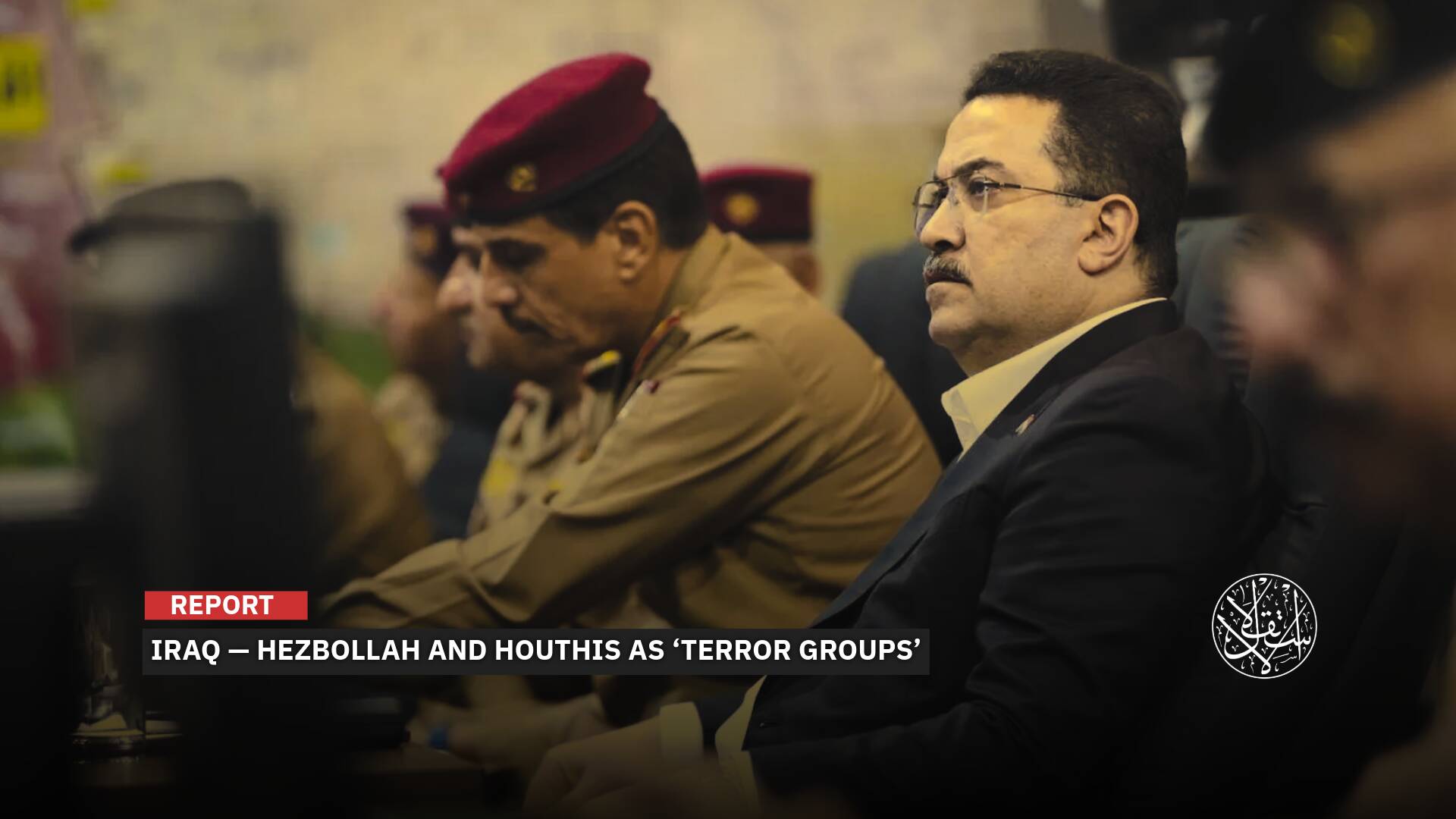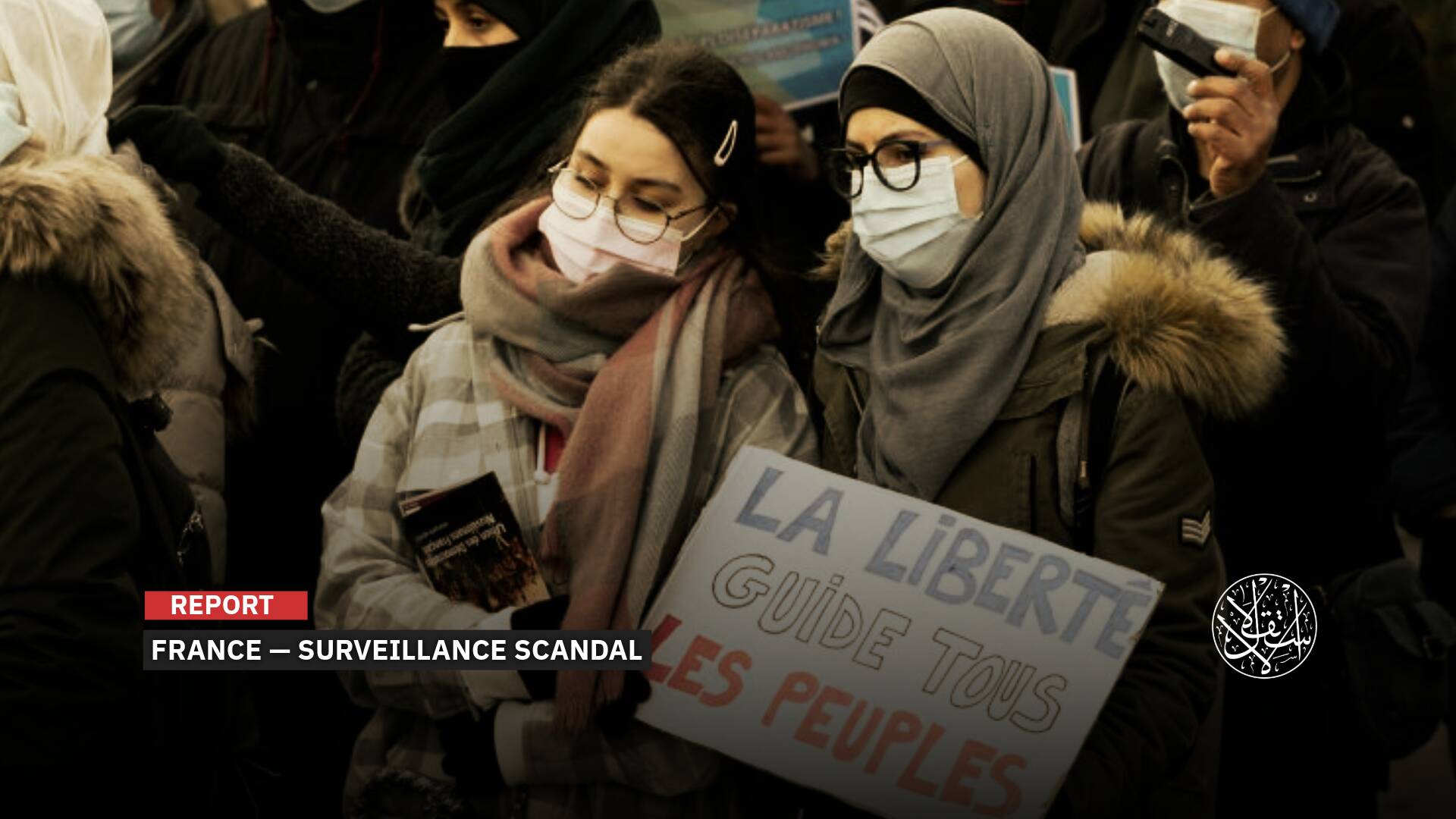Khamis al-Khanjar; a Millionaire Holding Multiple Citizenships Aspiring to Lead the Sunni Muslims of Iraq
_2.jpg)
After he was participating in Sunni decision-making behind the scenes, the Iraqi politician and businessman, Khamis al-Khanjar, has been trying since 2018 to play a direct role in the political process to reach the leadership of the Sunni community, by forming alliances and leading electoral lists.
Al-Khanjar, who currently leads the “Azm Alliance,” was singled out by Iran’s Foreign Minister, Mohammad Javad Zarif, among the Sunni leaders from non-state officials, with a visit to his home in Baghdad on April 24, 2021, which observers considered a “qualitative leap” in Tehran’s dealings with the Sunnis.

Multiple Relations
The Sunni businessman and politician is known for his wide relations in the region, as he enjoys a special relationship with Turkey and Qatar, whose nationalities he holds, in addition to his close relationship with Jordan, whose nationality he holds as well, he was also very close to Saudi Arabia and the UAE before the outbreak of the Gulf diplomatic crisis in 2017.
At present, al-Khanjar is the closest ally of Turkey and Qatar among the Sunni leaders in Iraq, and the farthest from Saudi Arabia and the UAE, according to the leader in the “Azm Alliance,” former Council of Representatives Speaker Mahmoud al-Mashhadani, during a televised interview on April 30, 2021.
Al-Khanjar is seeking at the current stage to form the largest Sunni alliance called “Azm” (Determenation) to run in the parliamentary elections on October 10, 2021, in competition with the “Taqaddum” (Progress) alliance led by its political rival, the current speaker of the Council of Representatives, Muhammad al-Halbousi.
In May 2019, the former Speaker of the Council of Representatives, Salim al-Jabouri, quoted al-Khanjar as saying: “The UAE is plotting a matter related to the status of the elections that took place in 2018, because the polling servers were there,” noting that “al-Khanjar confirmed that the results would be shocking to him.”
This seems to have caused the withdrawal of Khamis al-Khanjar himself from the election race in 2018, less than a month before the start, citing personal reasons—which he did not mention—that prevented him from continuing to compete for a representative seat in the governorate of Baghdad.
Al-Khanjar, who was close to the Crown Prince of Abu Dhabi Mohammed bin Zayed, maintained his close relationship with the Emir of Qatar, Tamim bin Hamad, which prompted Emirati and Iraqi media outlets funded by Abu Dhabi to launch an attack against him, as an Iraqi website funded by the UAE described him in December 2017 as: “Al-Khanjar, the secretary of the Iranian-Qatari militia project in Iraq.”
What is interesting is that the UAE-backed attack on the Iraqi website came after a series of reports it published that preceded the Gulf diplomatic crisis, promoting al-Khanjar and supporting his moves and political statements that show him as a “Sunni Arab leader with patriotic frameworks.”
Likewise, al-Khanjar published statements in which he supported the war against the “Houthis” in Yemen, which he described at the time as “Qarmatians of the era,” after Saudi Arabia had talked about intercepting missiles originating from Yemen that were targeting the city of Mecca.

Sanctioned by the US
After the phase of ending the presence of ISIS in Iraq in 2017, al-Khanjar became an ally of the pro-Iranian forces, after he accused former Prime Minister Nouri al-Maliki in 2012 of being “sectarian,” as he targeted the Sunnis and their leaders and caused the terrorist organization to enter their cities when they launched popular demonstrations against him.
After the return of the relationship with the pro-Iranian forces, which were said to have come under pressure from Tehran, specifically from the former commander of the Quds Force, Qasem Soleimani, al-Khanjar, who was one of the leaders of the Sunni “al-Qarar” list, formed an alliance with them in parliament after the 2018 elections called “al-Binaa’.”
Al-Khanjar appeared in several meetings that preceded the formation of the Iraqi Government in 2018, including his meetings with the leader of the Iranian-backed Badr Organization, Hadi al-Amiri, and the leader of the “Dawlat al-Qanoun” coalition, Nuri al-Maliki, who is also close to Tehran.
Following the outbreak of the popular movement in October 2019, the US Department of the Treasury imposed sanctions on al-Khanjar, along with a group of Iraqi militia leaders who were punished for suppressing protesters.
But al-Khanjar was accused by the US Treasury in December 2019, of “providing large sums of money to Iraqi political figures in order to mobilize support and secure the appointment of one of his candidates for a position within the government.”
The “al-Mashru’ al-Arabi” (Arab Project) party, led by al-Khanjar, responded to that by saying: “Reading the text of the resolution reveals a moral and political scandal that the United States commits with regard to human rights, when it relies on arbitrary charges against al-Khanjar that he intended to bribe government officials and became involved in corruption at the expense of the people.”
Adding: “The American accusations are based on a snitch that the ministry describes as a high-ranking former Iraqi official, as well as the ridiculous free accusations of embezzling state assets, confiscating private property for personal purposes, or talking about corruption related to government contracts, or the extraction of natural resources, or bribery.”
An Aspiring Millionaire
In June 2016, Reuters reported that the businessman al-Khanjar was “using his wealth estimated in hundreds of millions of dollars to establish an autonomous region for the Sunni community of Iraq.”
“For at least 10 years, al-Khanjar has financed Sunni politicians and fighters alike, and al-Khanjar’s transformation from a behind-the-scenes deal-making broker to someone who aspires to be a hero defending Sunni rights is a sign of the ongoing political discord in Iraq,” the agency added.
Reuters quoted al-Khanjar as saying that he “offers an alternative, namely, a federation in which Sunnis, Shiites and Kurds each manage their regions in the country without formally dividing them.” Al-Khanjar and his alliance partners believe that “if a federal Sunni region is established, it will attract billions of investments from the Arab Gulf states and Turkey.”
Al-Khanjar, who is always surrounded by a group of British aides and security guards, made a number of visits to northern Iraq during 2016, but his visits are limited to the Kurdistan region since he believes that “his life is at risk from ISIS and the Iranian-backed forces in other parts of the country.”
According to Reuters, al-Khanjar pays 65 thousand dollars a month to a foundation based in Washington, DC, run by former officials in the administration of former President Bill Clinton, to promote his cause in the United States, while Sunni opponents of al-Khanjar described him to be “promoting himself” and accusing him of “puts his thirst for power higher than the stability of Iraq.”
“His wealth gives him an advantage that helped him fund political coalitions, tribal uprisings, and fuel nationwide protests. Sunni and Shiite politicians alike seek his friendliness from time to another, including some who despise him,” the agency elaborated.
Al-Khanjar's net worth is estimated at hundreds of millions of dollars, and he has activities in manufacturing, banking, financial services, commercial and residential real estate in various parts of the Middle East, Europe and North Africa.
Critics, from former Sunni fighters to former Iraqi intelligence officers, say his family made their fortune by setting up front companies for the men of the late Saddam Hussein regime in the 1990s.
They accuse al-Khanjar of seizing the assets of his partners after the US invasion of 2003, accusations he denies, but when asked about his total wealth, al-Khanjar laughed, saying, “God honored him a lot,” according to Reuters.
Former American diplomats said: “Al-Khanjar’s huge wealth and his close ties to the Gulf states and Turkey allow him to be a secret and continuous force on the Iraqi political scene.”
“Al-Khanjar is one of the very few remaining Sunni figures who have vision, thought and money, although he is not ideal in a country suffering from violence, sectarianism and corruption,” said former American diplomat Ali Khoudary, who worked in Baghdad from 2003 to 2010.
A Controversial Figure
Controversy surrounds the history of Khamis Farhan al-Khanjar al-Issawi, born in 1965 in the city of Fallujah, Anbar Governorate, in western Iraq. He is a businessman and millionaire who wields great power at the regional and international levels.
Reuters quoted former Sunni fighters in Iraq as saying that he “helped finance the anti-US armed operations that began shortly after the invasion that it led in 2003,” and they say that he later “supported the uprising of American-backed Sunni tribes that contributed to the elimination of al-Qaeda in Iraq.”
Al-Khanjar says that in 2010 he helped establish one of the two main political lists in the Iraqi general elections, and three years later he helped fund the nationwide Sunni protests against the Baghdad government.
Izzat al-Shahbandar, a Shiite politician who negotiated with al-Khanjar during the government formation process in 2010, described the wealthy businessman as “the man the Shiite parties should have spoken to earlier this decade.”
Al-Shahbandar said during press statements published in 2016: “Al-Khanjar had influence and wealth, but he warned that the emergence of ISIS means that it will be difficult for him to be the undisputed strongman of the Sunnis today.”
Al-Khanjar calls for the establishment of a federal region. In 2016, he stated: “The establishment of a federal region along the lines of the semi-autonomous Kurdistan region of Iraq will give the Sunnis rights and help them fight ISIS.”
The businessman insists that he wants to save his country “for its own interest and not for his personal interest,” stressing that “no one does not want to see his country as safe and stable, and he would never have thought of going into politics if Iraq was secure and stable.”
Al-Khanjar currently owns two satellite channels, the first with the name of his city “Fallujah TV” while the other is “UTV” and is run by his eldest son Sarmad. He also heads the “al-Mashru’ al-Arabi” party and founded the “al-Mihwar” alliance in 2018, after his split from the “al-Qarar” coalition led by former Vice President Osama al-Nujaifi.









